Innovative podcast explores creative, interdisciplinary responses to climate change
You might not have ever thought about how art made of snow can communicate the threats of global warming. Or how an underwater opera can highlight the distress of our oceans. These unusual pairings—and many more—are the focus of a new podcast that explores unexpected connections between the arts and the sciences.
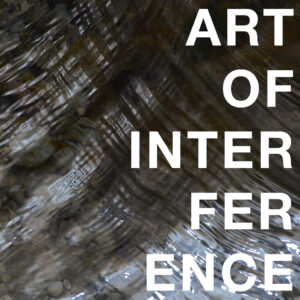
The podcast, Art of Interference, dives deep into the intersection of art, climate change, and humanity’s relationship with the natural world. The four-season podcast, spearheaded by a team of College of Arts and Science faculty and students, seeks to broaden our perspectives on climate change and our role in it by engaging with the arts.
Art of Interference features inspiring conversations between artists, scientists, academics, and the public about one of the most pressing issues of our time. It explores how the creative world can contribute to ongoing climate conversations and generate unexpected insights. The podcast, which just completed its first season, is led by Lutz Koepnick, Max Kade Foundation Professor of German Studies, professor of cinema and media arts, and director of the joint Ph.D. program in comparative media analysis and practice.
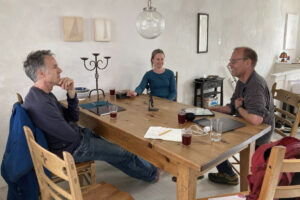
“We’re asking deep and probing questions about what it means to live and to live well in the face of the myriad threats of climate change,” said Koepnick. “One of the podcast’s goals is to bring artists into thoughtful conversations with cutting-edge climate science—not to judge the scientific accuracy of artistic interventions, but to expand interpretative contexts, offer new readings, and ask how the arts can inspire scientists and innovators to reflect on their own concepts and practices.”
Each season of the podcast is dedicated to one element: water, air, earth, or fire. Each episode features diverse artists from around the world whose work is deeply intertwined with that season’s elemental focus, investigating how the element influences their artistic practice. The first season, “Water,” includes episodes featuring artists whose work addresses the state of dew, fog, floods, waves, rivers, oceans, snow, and ice in our contemporary world.
“The podcast’s seasons follow the ancient theory of the elements: water, air, earth, and fire,” Koepnick said. “Though climate change has put all four under tremendous pressure, we decided to start with “water” because many recent climate emergencies result from either too much or too little water—and water has inspired many recent artists to develop relevant work.”
By engaging in conversations with featured artists and interdisciplinary experts, Art of Interference unpacks the meanings and implications behind their work. Thoroughly researched, it approaches the arts as a vibrant site to probe new models of acting in and being acted upon our changing planet.
In the episode on fog, Ph.D. student Maren Loveland and Koepnick visit the work of Fujiko Nakaya, a Japanese artist whose unique fog sculptures are intangible, carefully designed systems which strategically release fog in various landscapes and architectural settings. They also speak to Ralf Bennartz, Stevenson Chair and professor of Earth and environmental sciences, who details what fog is and how it literally changes our view of the world around us.
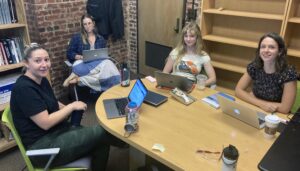
For the first season’s ten episodes, the team spoke with a wide variety of experts, including experimental musicians, a Hawaiian scholar and surfer, several museum curators, climate scientists, and philosophers, to present different perspectives on the arts’ role in conversations about climate change.
“Our aim is to offer something that will speak to art audiences as much as non-art audiences, for people within and beyond the academy,” Koepnick said. “All things told, the podcast is designed for listeners curious about the arts’ ability to reimagine old and develop new ideas about the relation of the human and the nonhuman, technology and nature, the human-made and the elemental. It’s designed for listeners who see a need to reevaluate our place in a world in which human efforts to dominate nature increasingly produce conditions that—in the form of extreme weather events and planetary disasters—have come to dominate us in turn.
The Art of Interference team includes:
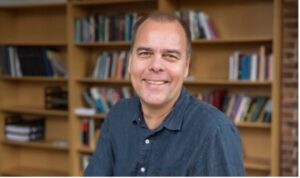
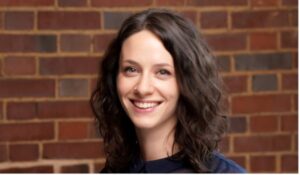
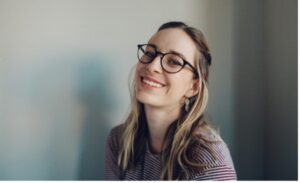
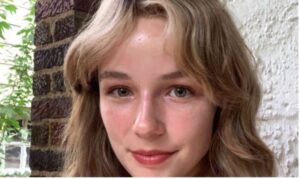
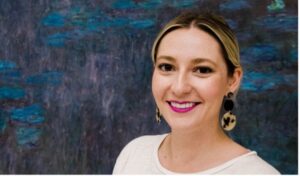
As the team turns their attention toward season two, “Air,” debuting in April 2024, they hope their work will inspire meaningful conversations, highlighting art as a medium that can develop new perspectives to approach the climate crisis.
“In season two, we will feature the work of artists, filmmakers, musicians, photographers, and creative makers as they address the element of air in various different states and manifestations: breath, wind, smoke, clouds, smog, and oxygen. We will discuss the carbon footprint of the current art world, explore artists who work engages with the ubiquity of climate-controlled environments, and feature a contemporary dancer who asks tough questions about the burdens of gravity and our desire to levitate into the air,” said Koepnick.
Inspired by their work with different artists and experts over the last year, the team recently decided to add a second prong to their podcast: Special Editions. The Special Editions present thought-provoking conversations about the arts as transformative media of inquiry, the role of art within the landscapes of higher education, and the interplay between artistic research, climate studies, and technology development. These special editions will involve Vanderbilt faculty, students, and guests, as exemplified in the recently published episode about a current exhibition at the Curb Center for Art, Enterprise, and Public Policy on ancient rock art.
Listen to season one episodes of Art of Interference.
